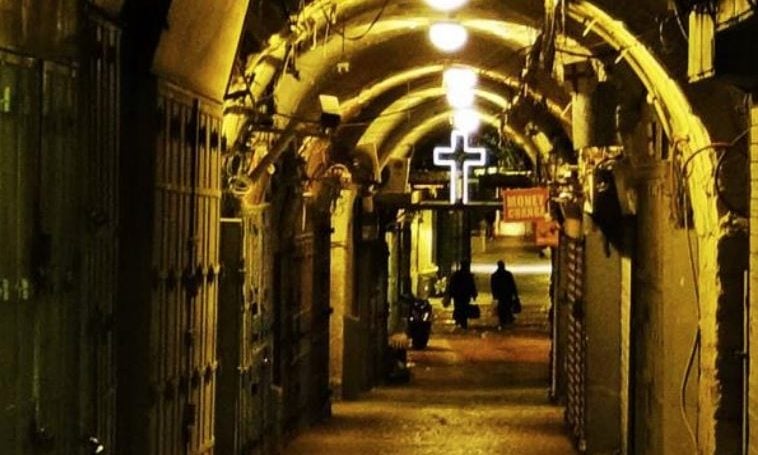Take a walk in the footsteps of an Ecumenical Accompanier: a Lenten guide
Resources & Research
Australian Christian Andrew Telfer recently served as an Ecumenical Accompanier with the World Council of Churches Ecumenical Accompaniment Programme in Palestine and Israel – his personal reflections form the backbone of an inspired free Lenten guide, which blends personal anecdotes, suggested calls to action and prayers

I recently served as an Ecumenical Accompanier (EA) with the World Council of Churches Ecumenical Accompaniment Programme in Palestine and Israel (EAPPI).
Having recently returned from three months living in the West Bank, I have first-hand stories to share about what is currently unfolding in the Holy Land.
A priority for all EAPPI teams is providing a protective presence for communities.
For us, this mostly involved walking through the Old City, and other communities, while wearing recognisable vests in the hope that this would reduce the likelihood of human rights violations occurring.
Advertisement
Other regular activities are self-initiated visits to communities and organisations. The former provided us with the opportunity to learn about difficulties and positive aspects of their lives and for us to show that we are genuinely concerned and wanting to inform people in our home countries about their situation. Visits to organisations were primarily for us to broaden our understanding of their roles and, in some cases, enhance relationships to enable better two-way communication.
The third major role is to monitor access to work, education and worship and to document any human rights violations. One of the Jerusalem teams monitors and accompanies children attending one of the schools in the Muslim Quarter of the Old City. Students are regularly stopped by soldiers for identification checks and bag searches and EAs can provide a “protective presence” in these situations. Both teams are also required to monitor either Checkpoint 300 at Bethlehem (shared with the Bethlehem EA team) or Qalandiya Checkpoint between Jerusalem and Ramallah. Incident reports are lodged if there are unusually long delays or other significant issues occurring.
I have contributed my personal reflections to this new Palestine Israel Ecumenical Network Lenten guide, which blends personal anecdotes, suggested calls to action and prayers.
Together, let us be actively conscious of the events that are occurring in the land that embeds Jesus’ footsteps.
Editor’s note: The weekly content that Andrew shares in the free Palestine Israel Ecumenical Network Lenten guide was largely drawn from emails he sent to family and friends whilst he was in Palestine, so it is presented in a “diary-like” format.





